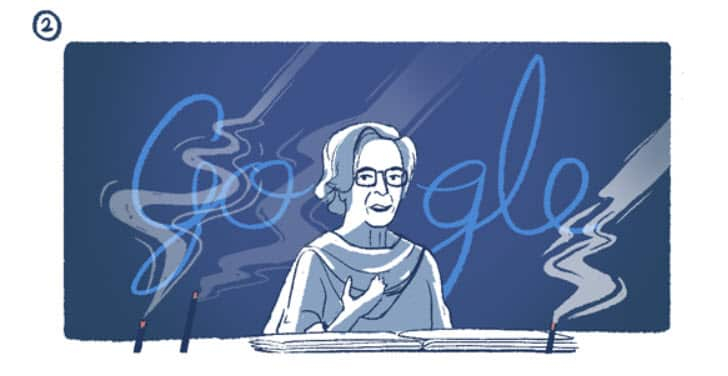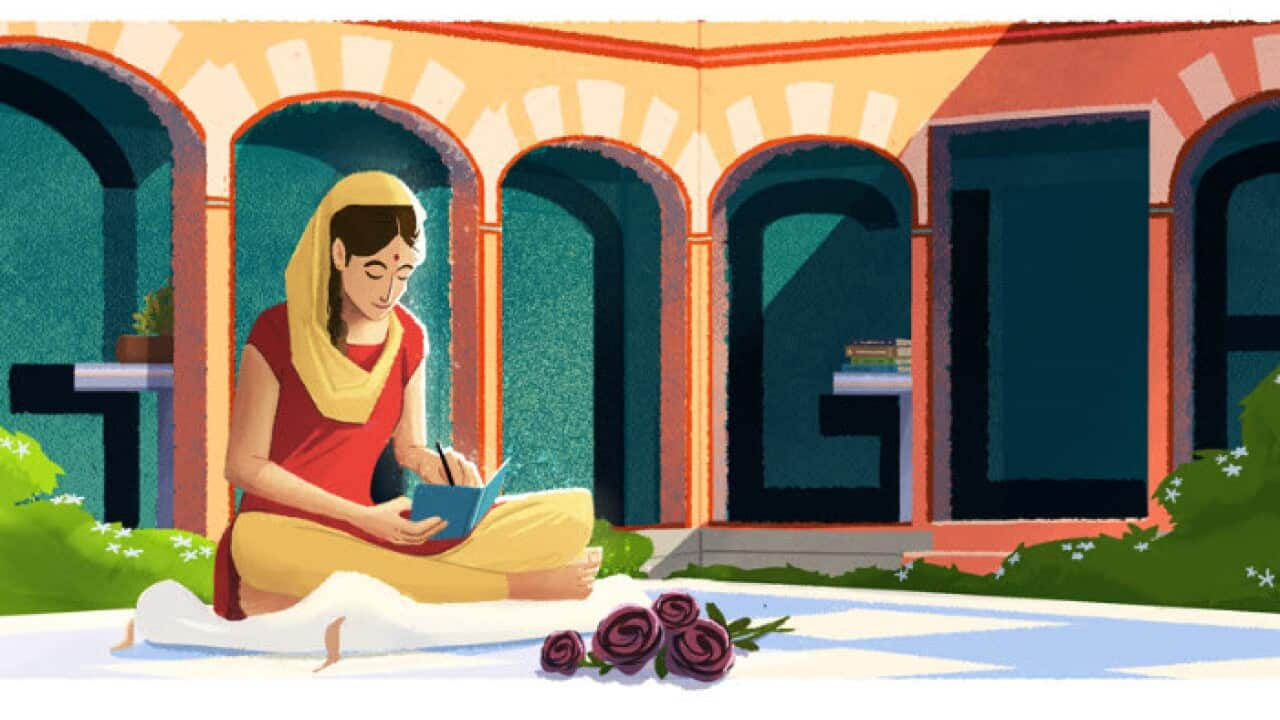Amrita Pritam is the doyenne of Punjabi literature, who was hailed as the 'poetess of the century' for her meaningful and incisive writing.
She captured the misery of the partition of India and Pakistan in her immortal poem 'Ajj Aakhan Waris Shah nu'. Addressing the legendary sufi poet of Punjab, Waris Shah, she called upon him to return from his grave and write about the unspeakable distress that Punjabi women were subjected to in 1947, because if he was so moved to write about the suffering of one woman in his legend about Heer -Ranjha, surely the wails of thousands of women would reach him in the other world and force him to write again!
Apart from poetry, Amrita Pritam wrote almost 30 books, one of which was turned into a Bollywood film - Pinjar.
Paying tribute to her creativity and spirit, the Google doodle marking her birth centenary noted, "Today’s Doodle celebrates Amrita Pritam, one of history’s foremost female Punjabi writers, who “dared to live the life she imagines.” Born in Gujranwala, British India, 100 years ago today, Pritam published her first collection of verse at age 16. She is most remembered for “Ajj Aakhaan Waris Shah Nu,” her poem lamenting the traumatic 1947 partition of India and Pakistan." Created by Vrinda Zaveri, the blurb explaining the story behind the doodle noted, "Known for her mastery of the Punjabi language, Pritam lived in Pakistan after the partition, but also wrote many works in Hindi and Urdu, as her work was admired on both sides of the border. Pritam also worked for All-India Radio and edited the literary journal Nagmani. In 1986, she was nominated to Rajya Sabha, the Indian parliament."
Created by Vrinda Zaveri, the blurb explaining the story behind the doodle noted, "Known for her mastery of the Punjabi language, Pritam lived in Pakistan after the partition, but also wrote many works in Hindi and Urdu, as her work was admired on both sides of the border. Pritam also worked for All-India Radio and edited the literary journal Nagmani. In 1986, she was nominated to Rajya Sabha, the Indian parliament."

An earlier Google doodle created for Amrita Pritam's 100th birthday Source: Google
"Throughout a six-decade career, Pritam received many prestigious awards including the Bharatiya Jnanpith literary award in 1981 and one of India’s highest civilian awards, the Padma Vibushan, in 2005. That same year a French translation of her novel, The Skeleton, was awarded the La Route des Indes Literary Prize."
The doodle featured roses, in a reference to her autobiography 'Kala Gulab'.
It was widely viewed and appreciated in many countries, including Australia, according to Google.




